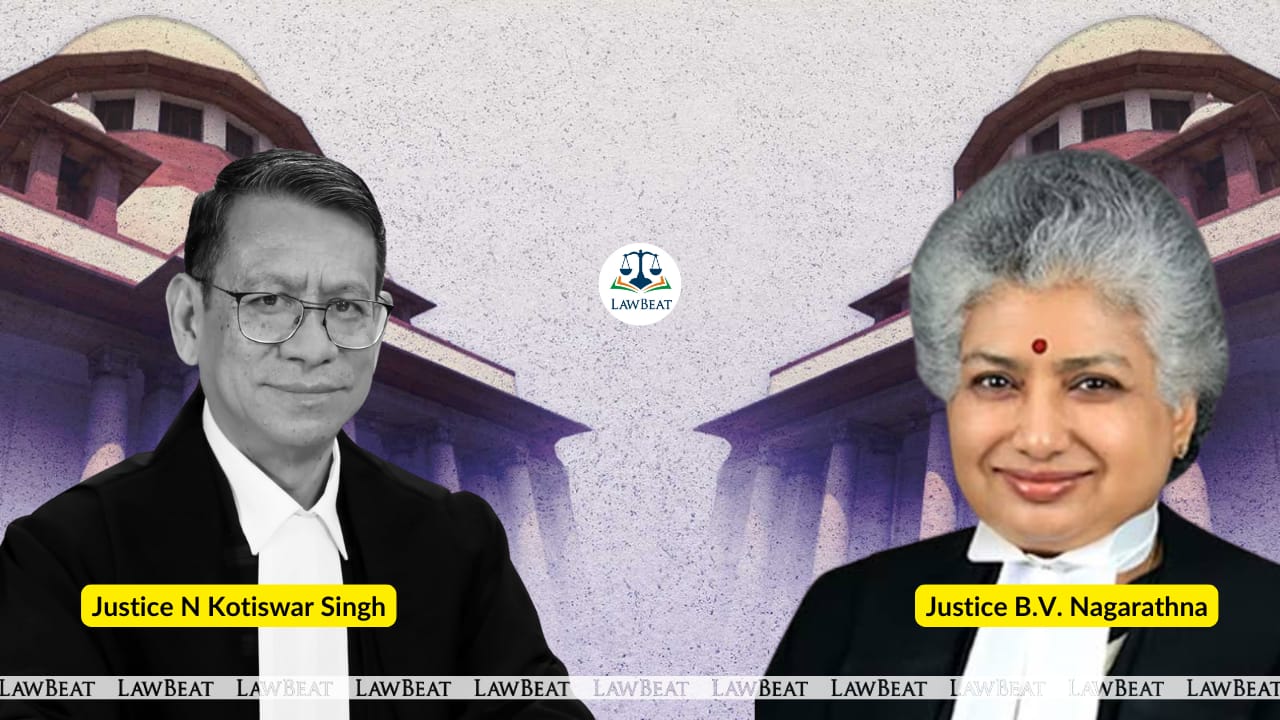High Courts Must Provide Independent, Well-Reasoned Justifications in Appeals: SC

The Supreme Court said it is cognizant of the large pendency of cases bombarding the courts, however, the same cannot come in the way of court’s solemn duty, particularly, when a person's liberty is at stake
The Supreme Court has said that the high court must independently examine evidence in appeals against the conviction as it is akin to a trial court even though being an appellate court, and also because the conviction curtails the personal liberty of the accused in the incessant future.
"While hearing the appeals under Section 374(2) of the Code of Criminal Procedure, 1973, the High Court is exercising its appellate jurisdiction. There shall be independent application of mind in deciding the criminal appeal against conviction," a bench of Justices B V Nagarathna and N Kotiswar Singh said.
The court emphasised it is the duty of an appellate court to independently evaluate the evidence presented and determine whether such evidence is credible.
"Even if the evidence is deemed reliable, the High Court must further assess whether the prosecution has established its case beyond reasonable doubt. The High Court though being an appellate Court is akin to a Trial Court, must be convinced beyond all reasonable doubt that the prosecution's case is substantially true and that the guilt of the accused has been conclusively proven while considering an appeal against a conviction," the bench said.
The court felt the necessity of this exercise arises from the fact that a conviction curtails the personal liberty of the accused in the incessant future.
"Hence, the High Court must provide clear reasons for accepting the evidence on record. Mere concurrence with the findings of the trial court is insufficient unless supported by a well-reasoned independent justification. As the first appellate court, the High Court is expected to evaluate the evidence including the medical evidence, statement of the victim, statements of the witnesses and the defence’s version with due care," the bench said.
The court opined while the judgment need not be excessively lengthy, it must reflect a proper application of mind to crucial evidence.
"Albeit the High Court does not have the advantage to examine the witnesses directly, the High Court shall, as an appellate Court, re-assess the facts, evidence on record and findings to arrive at a just conclusion in deciding whether the trial court was justified in convicting the accused or not. We are also cognisant of the large pendency of cases bombarding our courts. However, the same cannot come in the way of the court’s solemn duty, particularly, when a person's liberty is at stake," the bench said.
It allowed an appeal filed by one Amar Sardar against the Calcutta High Court's judgment and order on May 15, 2024, which upheld the conviction and sentence of seven years in a case related to offences under Sections 376, 511, 354 of the IPC.
The appellant contended the high court had not independently considered the evidence on record. As the high court was considering an appeal against conviction passed by the fast track court, the high court ought to have considered the evidence on record independently and passed a judgment one way or the other in the appeal; however, instead, the high court had simply reaffirmed the conviction and sentence imposed by the fast track court in the absence of any independent reasoning given by the high court, the appellant argued.
His counsel claimed the judgment was erroneous owing to a lack of any reasoning.
The state counsel, on the opposite, said the high court had considered the evidence on record and thereafter analysis of the evidence of the fast track court and had rightly dismissed the appeal.
The Supreme Court noted that it in State of Uttar Pradesh Vs Ambarish (2021) had held that while deciding a criminal appeal on merits, the high court is required to apply its mind to the entirety of the case including the evidence on the record before arriving at its conclusion.
In this regard, the division bench also referred to the orders passed by the court in Shakuntala Shukla Vs State of Uttar Pradesh, (2021) and State Bank of India Vs Ajay Kumar Sood, (2023).
In the instant case, the bench noted that the judgment had been sub-divided into the following sub-topics, namely, the appeal, the prosecution, the defence, the evidence and analysis of evidence which was based on the fast track court’s findings in the matter and thereafter the appeal had been dismissed.
"No doubt the impugned judgment has neatly sub-titled various aspects of the case, but we find that the independent consideration of the evidence on record is conspicuous by its absence inasmuch as ‘paragraphs 5 to 28’ record the oral evidence and also list the exhibits which have been produced in the said case; however, the said evidence has not been considered by the High Court so as to ascertain whether the Fast Track Court was justified in passing a judgment of conviction and sentencing the appellant," the bench said.
It also found the analysis of the evidence was on the basis of what the fast track court had recorded and arrived at its findings, and the same had been reproduced in various sub paras and consequently, the appeal had been dismissed.
The bench opined that the high court ought to have considered the evidence on record in light of the arguments advanced at the bar and thereafter ascertained whether the fast track court was justified in passing the judgment of conviction and imposing the sentence.
"The same being absent in the impugned judgment, for that sole reason, we set aside the same," the bench said.
The court remanded the matter to the high court with a request to rehear the appeal and pass a fresh judgment, bearing in mind the observations made in the judgment.
Case Title: Amar Sardar Vs The State of West Bengal
